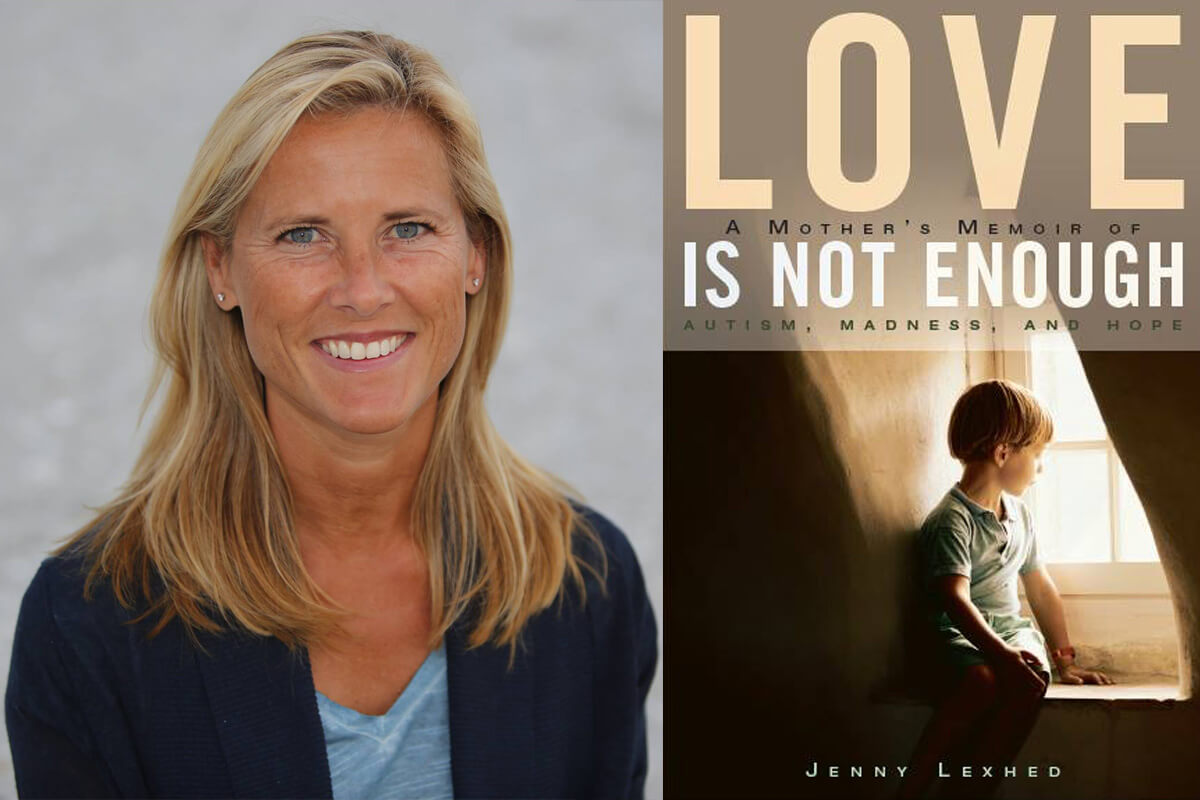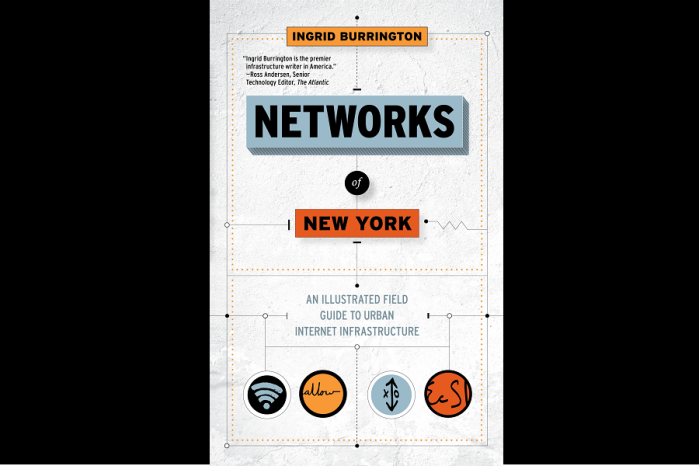The title of Jenny Lexhed’s parenting memoir, “Love Is Not Enough,” is a difficult one for parents to grasp. But those coming to terms with raising an autistic child will understand it immediately. “Love is the foundation when you have a child,” she explains. “But love is not enough to raise a child with autism; you have to understand, you have to educate yourself and how you can meet your child in the right way and help them learn and develop.” The book, already a best-seller in her native Sweden and just released in the U.S., recounts a struggle whose stakes were as high for her as her son, Lucas.
She describes getting the diagnosis – a difficult process in itself in the late ’90s – as “falling into a big black hole, because there is so much to take in and learn.” It also came at a difficult time for her family: Her husband had just started a company, which meant she was spending the majority of her time home alone with Lucas. “I saw [his condition] as my responsibility.” But separating their roles that way wasn’t just hurting them, but also Lucas. “I was spending the most time with our son, I could see the different signs but my husband says, ‘Oh no, he’s just a bit late.'” Even a nurse dismissed her concerns by trying to assure her that little boys tend to lag behind generally. The Lexheds had also had another child when Lucas was about 18 months old, and siblings can regress when a new baby arrives, then take a developmental leap forward later on. Having little time during the day, Lexhed began saying up during the night researching autism and creating her own educational materials for Lucas, who faced a long wait getting into the special programs he needed. The feeling of “fighting against a clock” drove her on. “Everything shows that early intervention is really good because when the child is young, the brain can adapt more easily and rewire, it’s easier to learn new things, communication and social interaction,” she says. But the only thing more difficult than trying to manage an autistic child is doing it without help. Eventually, the drive to help her son not only consumed all of Lexhed’s days, but herself, too: She suffered a nervous breakdown that left her hospitalized in 2001. A study she later read found that parents with special-needs children have higher rates of depression and burnout; mothers to children with autism were found to have the same level of stress as combat soldiers, which didn’t surprise her. “It’s a constant challenge, every day,” she says, and for most people it’s a lifelong challenge – 84 percent of adults with autism still live with their parents. She credits her recovery with learning to care for herself by leading a balanced life, including exercise, getting enough sleep and making time for relaxation. But reaching out for help was the crucial step. Since finding a caregiver for a special-needs child can be difficult, family becomes even more important. For Lexhed, her mother and especially mother-in-law were key to managing the most difficult early first years. The experience was what started Lexhed on the path to writing “Love Is Not Enough.” She took a therapeutic writing course as part of her recovery, and the teacher suggested sharing her struggle with other parents, and even health care professionals. “What helped me during those hard times were other parents’ stories, so I decided to try [telling my own].” Lexhed describes how working to understand Lucas honed her into a highly specialized detective. “What is so frustrating about being an autism parent is that you feel inadequate so many times. Your child can be screaming and you don’t know why – are they in pain? What’s happening?” Anything from the big picture – Is this social situation putting too high of a demand on him? – to the smallest detail – Are his clothes uncomfortable? Is the music too loud or the lighting too bright? – can be vital in figuring out his reactions. An issue during recess at preschool took some untangling: To go outside after lunch, the school required children to wear special overalls, which Lucas would throw a tantrum about having to put on. Then, he started peeing his pants. “They were thinking, ‘Is this caused by stress, is it the social situation, too many kids out playing?’ Until we figured out that he was only doing it when he had these extra overall pants on.” By peeing his pants, he could change back into his more comfortable jeans and play in those. “That was his way to get his way without communicating.” Sensory issues even turned a simple pleasure like ice cream into an issue. Lucas loved to eat it – from the carton. When Lexhed would tell him no and put in on a plate, “he’d have a very big tantrum, he’d scream and throw the plate on the ground.” He didn’t have the verbal skills to explain what was wrong until many years later: putting the ice cream on a plate made it melt faster, and he didn’t like the texture of soft ice cream. “These are everyday situations – it’s not a serious thing, but things happen like that all the time and you have to be a detective and try to figure out what’s happening with your child.” Developing communication skills is one of the main reasons Lexhed urges parents to seek out help and services as soon as they suspect something may be wrong. It was once thought that if an autistic child doesn’t speak by age 5 that he or she will never develop language skills; that’s since been debunked. A lot of things once thought to be true are changing as anecdotal evidence gives way to studies that are expanding our knowledge of this disorder. Lucas received early behavioral therapy, and went from using pictures when he was younger to being able to communicate enough to explain what he’s feeling, and even have a social life outside of his family. It can be difficult to resist the temptation of opting out – it’s often the easiest choice for everyone. Children say “no” to new things because they’re uncomfortable with uncertainty, but for parents it’s about what they know will happen: the stress of coaxing their child into the experience, and the looks and comments from others when that process doesn’t go smoothly. “You develop thick skin and you really have to see past that and know what is good for you and your child, and what you want your child to learn,” says Lexhed . “Initially it’s really tough to do new things, but then when you can overcome that, you can have the benefits and the joy.” Beyond the struggles, Lexhed hopes her book also shows that there are unique joys to life with an autistic child.
There are ways to make a new experience less stressful for both of you: “There is a lot of hope in having a different child,” she says. “It makes you more humble to people in the world and what is happening around you.”
And she hopes that through understanding autism, people can come to see the extraordinary qualities of Lucas and others like him.
“You think that people with autism, they don’t have feelings, but that’s so wrong,” Lexhed says. “Autistic people are probably the most friendly people, they’re so loyal and loving.” They may not always show it in what’s considered the “right” way, “but there is so much emotion.
‘Love Is Not Enough’: What it’s like to raise an autistic child

jennylexhed.com


















